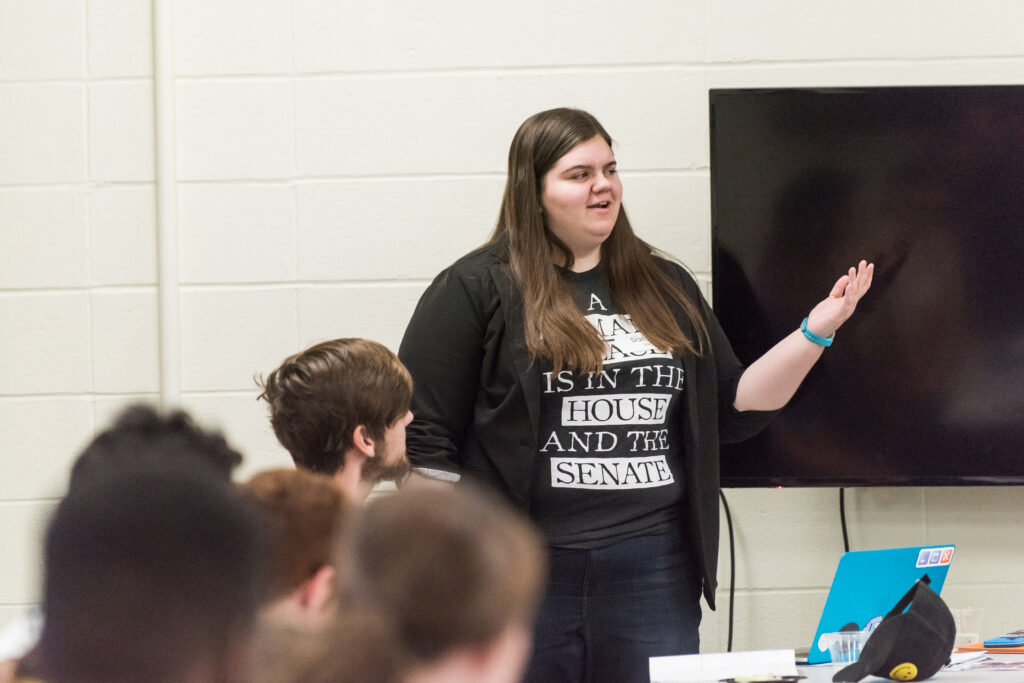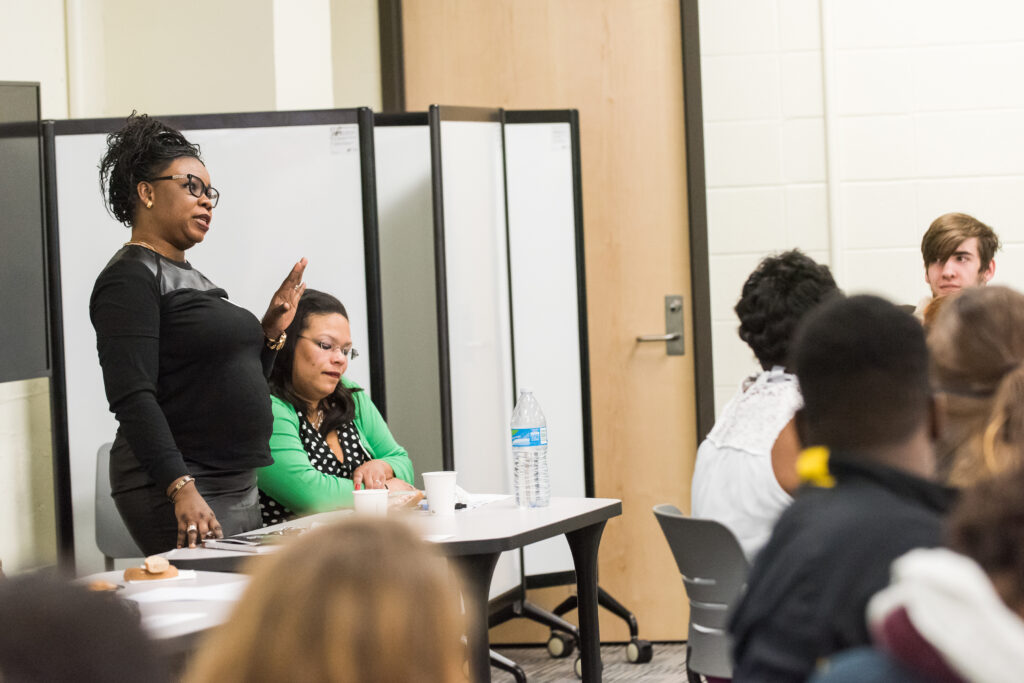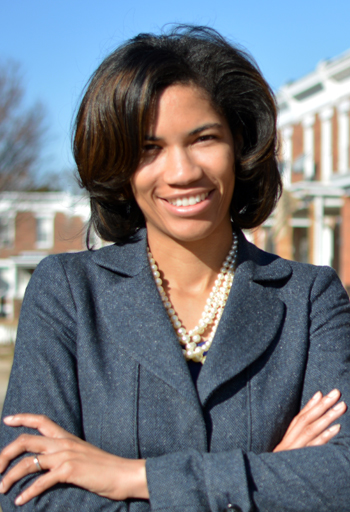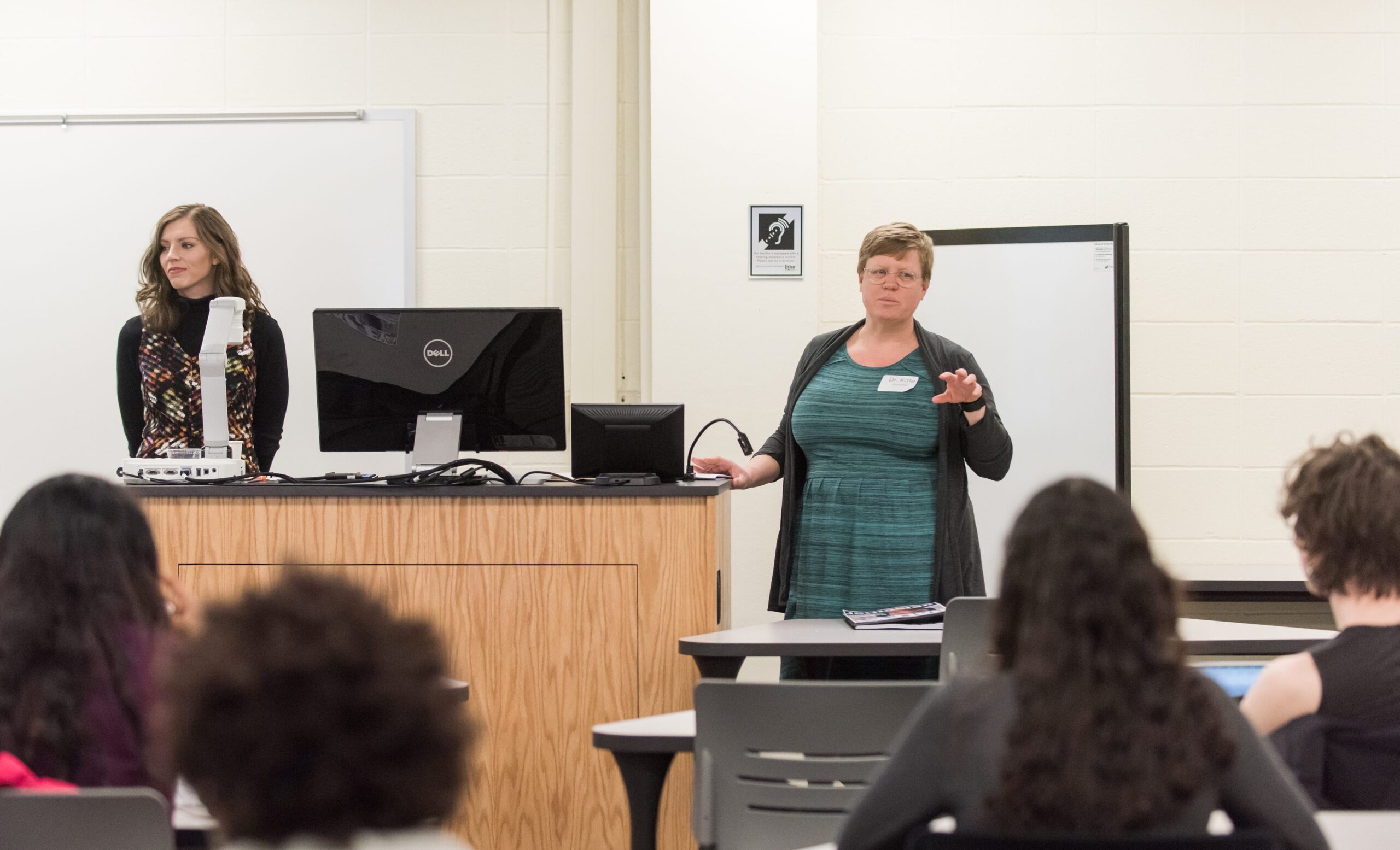UMBC’s Elect Her workshop offered an engaging introduction to electoral politics for dozens of young women from UMBC and local high schools this spring.
Kate Drabinski, senior lecturer in gender and women’s studies, has organized the workshop for four years, with the goal to increase the representation of women in elected office through supporting young women’s leadership on campus. It has now become a highly anticipated annual campus event, expanding each year and, for the first time, now including Baltimore City high school students.
“I brought this event to campus after noticing a few years ago that while there was gender parity in SGA, the vast majority of women were in appointed—not elected—office. It suggested to me that something was keeping women from running for office themselves,” says Drabinski.
The program has seen results. In 2013 and 2014, under just 30% of SGA candidates were women. That proportion has increased to over 40% for each of the last three years.
Sarah Lilly ’17, information systems, currently serves in UMBC’s Student Government Association (SGA) as speaker of the senate. She has attended Elect Her for the past four years and shares, “Each time, I am more hopeful for the future of women in leadership than the next.”

“This event has given me amazing real insight on what it really means to run for office, even when facing all of the challenges that women in politics face today,” Lilly says. “It is a very real possibility that I will be running for election in the next 5–10 years, and this event has definitely created that path for me.”
Lilly’s comments reflect the vision of the Elect Her program, which aims to help women run for office on campus as preparation to run in their communities and at all levels of government.
“Getting up the courage to run for office, even though you might lose, is exciting stuff. And let’s be real, being in politics means losing a lot of the time,” says Drabinski. “Part of Elect Her is supporting each other as we grow the thick skins necessary to bring our fierceness to public life.”
UMBC’s March 2017 Elect Her training was facilitated by Jessica Murphy from Running Start, a nonprofit focused on leadership development. It included modules on identifying issues of concern, planning a campaign strategy, and perfecting an elevator speech, as well as a campaign simulation. This year’s event also featured a panel of student leaders sharing their own experiences running for SGA and a communications training.

Baltimore City Council Member Shannon Sneed served as this year’s guest elected official, sharing her experience transitioning to electoral politics from a career in broadcast journalism.

Sneed became engaged in politics after putting down roots in East Baltimore. She began attending community meetings and didn’t hear local elected officials addressing the issues she found most concerning, she told the students at Elect Her. Eventually, to see more movement on those issue, “I decided to run,” she said. “I couldn’t put this on anyone else.”
As many first-time candidates find, it wasn’t any easy path. “It was intimidating to tell my story after being behind the scenes in journalism, but I felt I had to be honest,” Sneed said, so she started knocking on doors to connect with her neighbors.
After a first campaign that was close, but ultimately unsuccessful, Sneed won a Baltimore City Council seat on her second try. “I really do think knocking on doors is how I won the election,” she told the students. “I got to know the people. I got to know the issues.”
Sneed’s story shows how essential preparation, perseverance, and putting feet to pavement day in and day out can be to winning an election and having your voice heard on issues that matter, says Drabinski. “We can make real changes,” she believes, “but first we have to get ourselves to the table.”
Elect Her helps young women get their foot in the door, to take that first step toward that seat at the table.
Photos: Header image features Jessica Murphy (l) and Kate Drabinski (r). All three Elect Her photos are by Marlayna Demond ’11 for UMBC.
Update: This article has been corrected to include more accurate and complete data on the representation of women in SGA.

